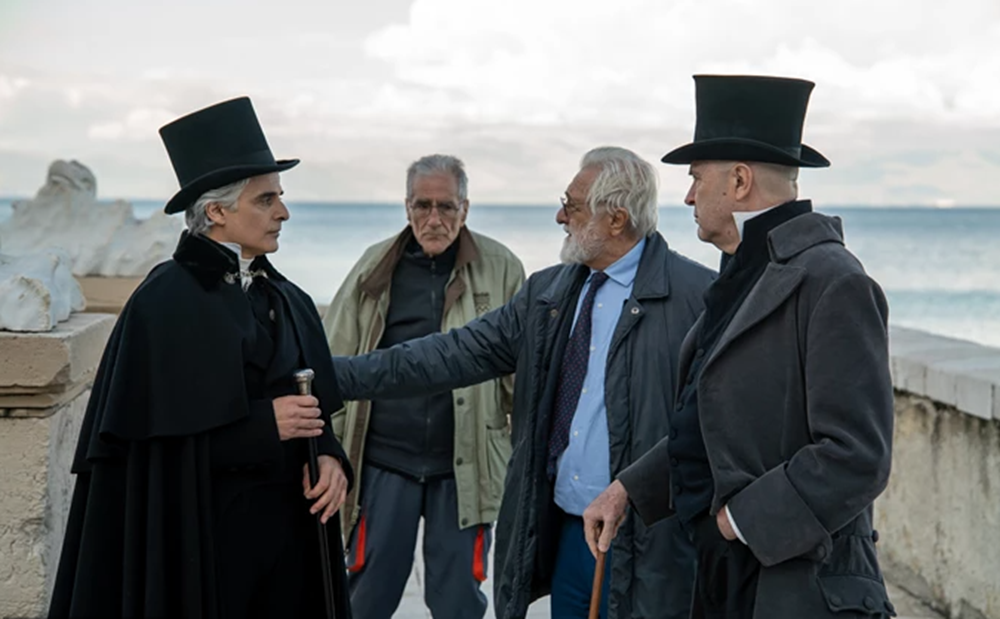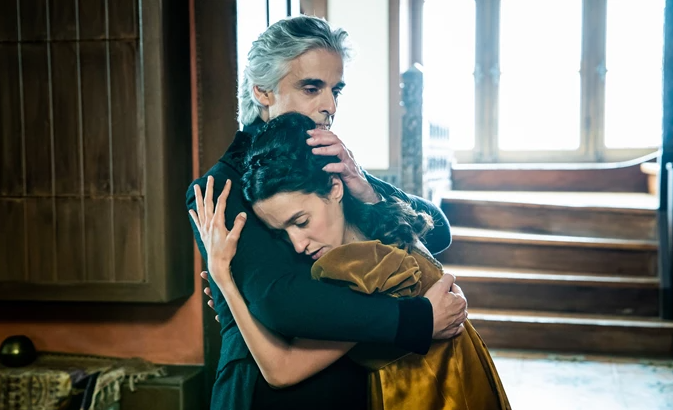
Having captured on the silver screen—to huge public acclaim—the achievements of some of the most iconic figures of Greek and world culture, from Cavafy and El Greco to Kazantzakis and Papadiamantis, Yannis Smaragdis proves that cinema is the great “popular art of our times.” On the occasion of the premiere of his latest film, based on the works and days of Greece’s first and, according to many, most important governor, Ioannis Kapodistrias, the renowned Greek director spoke to Days of Art in Greece.
As our conversation unfolds, on the other end of the phone line, I can hear a voice that is strong and confident, yet sensitive and playful at the same time. It is impossible not to ask him if he remembers when he fell in love with cinema. He responds with an image straight out of Giuseppe Tornatore’s universe: eight-year-old Yannis has come down from Mount Ida and is wandering around Heraklion when, high up on a wall, he sees the light of the projector and the white screen of the open-air cinema fluttering in the light breeze, but also the lives of the characters of Greek cinema projected onto it. “It was like being in a dream,” he confesses.

From that moment on, he realizes that cinema can lead to what he now calls “the light of our central existence.” Negotiating light and darkness by its very nature, cinema, according to Yannis Smaragdis, communicates directly with the Eleusinian Mysteries, since it “abolishes time, contains catharses, and leads to higher substances.” As the conversation with him progresses, I understand more and more the mood of a director who, alongside his artistic identity, wishes to “connect with other people.” For him, cinema has the power to take us beyond the surface of things, moving towards their “inner life.”

Although one might say, looking at his work, that Yannis Smaragdis has identified himself with the genre of historical biography, conversation with him reveals a polymath artist who returns to Orson Welles‘ ideas about truth and deception in cinema, while recognizing Jean-Luc Godard as a defining figure of anti-Aristotelian narrative. The Greek director dwells at length on one of the last statements made by the patriarch of the Nouvelle Vague, that “Europeans should give ten dollars to Greece every time they use the word ‘therefore’…
In contrast to his longstanding criticism of those in power, who, in his opinion, have failed to grasp the “core strength of Greek culture,” Yannis Smaragdis returns with another Greek-centric film, focusing on the figure of Ioannis Kapodistrias, which will be released in theaters on December 25, 2025. As I urge him to recount the adventures of the preparation and filming, the 79-year-old director tells me about the almost cosmic circumstances that brought actor Antonis Myriagos into his cinematic universe.
With the support and positive attitude of Natalia Kapodistria, the last descendant of the great governor, Yannis Smaragdis guided Antonis Myriagos for a long time through a process of immersion and rapprochement with the soul of Ioannis Kapodistrias. With the generous financial support of the Greek diaspora, mainly in America, and armed with the valuable experience gained from his previous film projects, Yannis Smaragdis managed to create the conditions “to combine every piece of the mosaic even before filming began.”

A proponent of the view that every project should be undertaken with humility and goodwill, he mentions that next season onwards his film about Kapodistrias will be screened free of charge in schools and cultural institutions in Greece and abroad, while he is eager to answer my last question concerning the sense of realism conveyed by the first promotional stills of his film.
“We followed a unified approach to the color palette of the makeup and the cinematography of Aris Stavrou. We aimed to explore the golden theme of Greek hagiography,” Yannis Smaragdis vividly emphasizes, demonstrating that form and content must be inseparable—especially when one is dealing with popular cinema.
*The photographic material is the intellectual property of Leonidas Zarkos
*Thanks to film critic Yannis Zoumboulakis







Leave A Comment